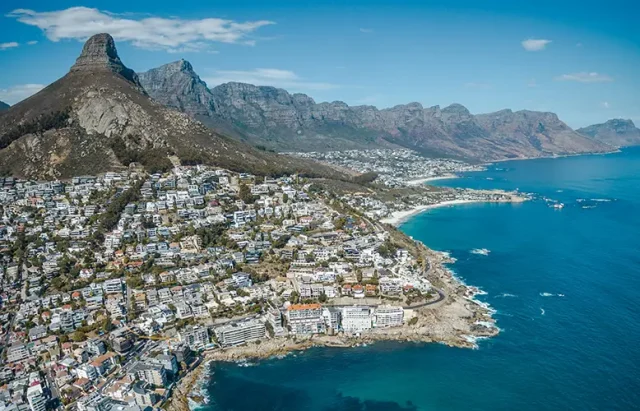
Cape Town’s underwater world offers divers a breathtaking array of marine life and diverse ecosystems. From vibrant kelp forests to historic shipwrecks, the waters surrounding this South African coastal city teem with aquatic wonders waiting to be explored.
You’ll encounter an impressive variety of sea creatures, including seals, sharks, and colorful fish species unique to the region. The city’s prime location at the meeting point of two ocean currents creates a rich biodiversity that attracts divers from around the globe.
Whether you’re a seasoned diver or new to the sport, Cape Town’s dive sites cater to all skill levels. With visibility often exceeding 20 meters and water temperatures ranging from 12°C to 17°C, conditions are ideal for underwater adventures throughout the year.
Diverse Dive Sites Around Cape Town
Cape Town offers an array of underwater experiences for divers of all levels. From vibrant reefs teeming with marine life to mysterious shipwrecks, the city’s coastal waters are a treasure trove of aquatic wonders.
Discovering False Bay’s Marine Treasures
False Bay is a marine protected area known for its rich biodiversity. You’ll find kelp forests swaying in the currents, providing shelter for various fish species. Simon’s Town, located on the western shore, serves as a gateway to several dive sites.
Smitswinkel Bay is home to five purposely sunk wrecks, creating artificial reefs. These structures now host colorful nudibranchs, octopuses, and schools of fish.
Boulders Beach, famous for its African penguin colony, also offers unique diving opportunities. You can observe these charismatic birds underwater as they dart through the water with surprising agility.
Atlantic Ocean Wonders
The Atlantic side of Cape Town presents a different underwater landscape. Seal Island, off the coast of False Bay, is a prime spot for observing Cape fur seals in their natural habitat.
For thrill-seekers, shark cage diving near Seal Island provides a chance to encounter great white sharks up close. These apex predators frequent the area, drawn by the large seal population.
The cold Atlantic waters host an abundance of marine life. You’ll encounter sea fans, sponges, and a variety of fish species adapted to these chilly conditions.
Shipwrecks and Coral Reefs of the Cape Peninsula
The Cape Peninsula’s coastline is dotted with shipwrecks, each with its own story. The Smitswinkel Bay wrecks, including the SAS Pietermaritzburg, offer fascinating dive experiences.
These sunken vessels have transformed into vibrant artificial reefs. Soft corals and hard corals have colonized the structures, attracting diverse marine life.
Rocky reefs along the peninsula support thriving ecosystems. You’ll find crayfish, octopuses, and numerous fish species hiding among the nooks and crannies.
Diving here allows you to explore both historical artifacts and natural marine habitats in a single location.
Conservation & Engagement
Cape Town’s underwater ecosystems face threats but offer opportunities for protection and involvement. Divers play a crucial role in preserving marine life and supporting local initiatives.
Protecting South Africa’s Marine Biodiversity
Table Mountain National Park’s marine protected areas safeguard diverse underwater habitats. You can contribute to conservation efforts by following responsible diving practices. Avoid touching coral or disturbing marine life. Report any illegal fishing or poaching activities to park authorities.
The Western Cape’s unique kelp forests and rocky reefs need protection from pollution and overfishing. Support local organizations working to preserve these ecosystems. Consider participating in underwater clean-up events to remove debris harmful to marine life. Well, if you face any legal issues in SA, try not to worry, here you can find legal advice in SA. They will better handle your situation.
Community and Visitor Involvement
You can engage with local conservation projects during your visit. Many dive operators offer eco-tourism experiences that combine diving with educational programs about marine biodiversity.
Volunteer opportunities abound for diving enthusiasts. Join citizen science initiatives to monitor fish populations or invasive species. These programs provide valuable data for researchers and policymakers.
Support businesses committed to sustainable practices. Choose accommodations and dive shops that prioritize environmental responsibility. Your choices as a visitor can positively impact the local marine environment.





